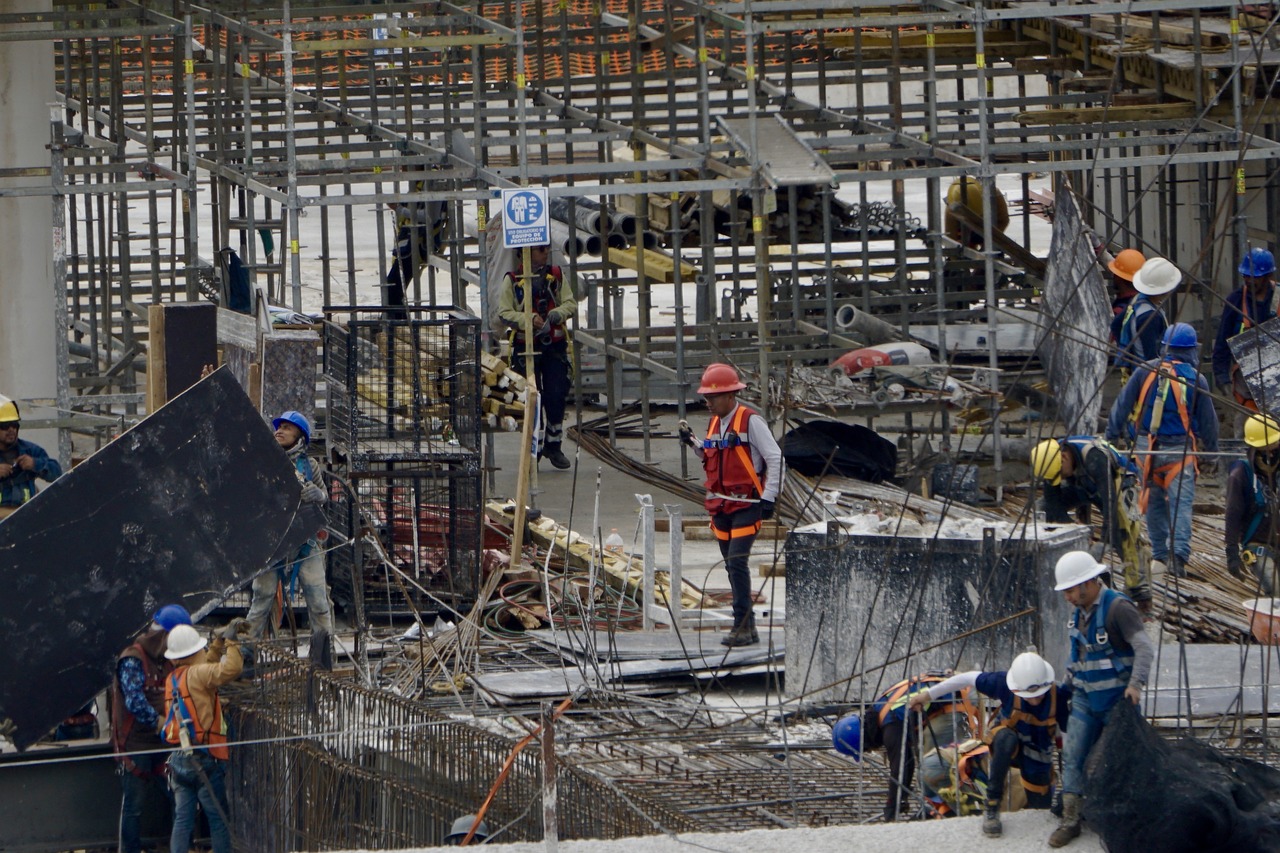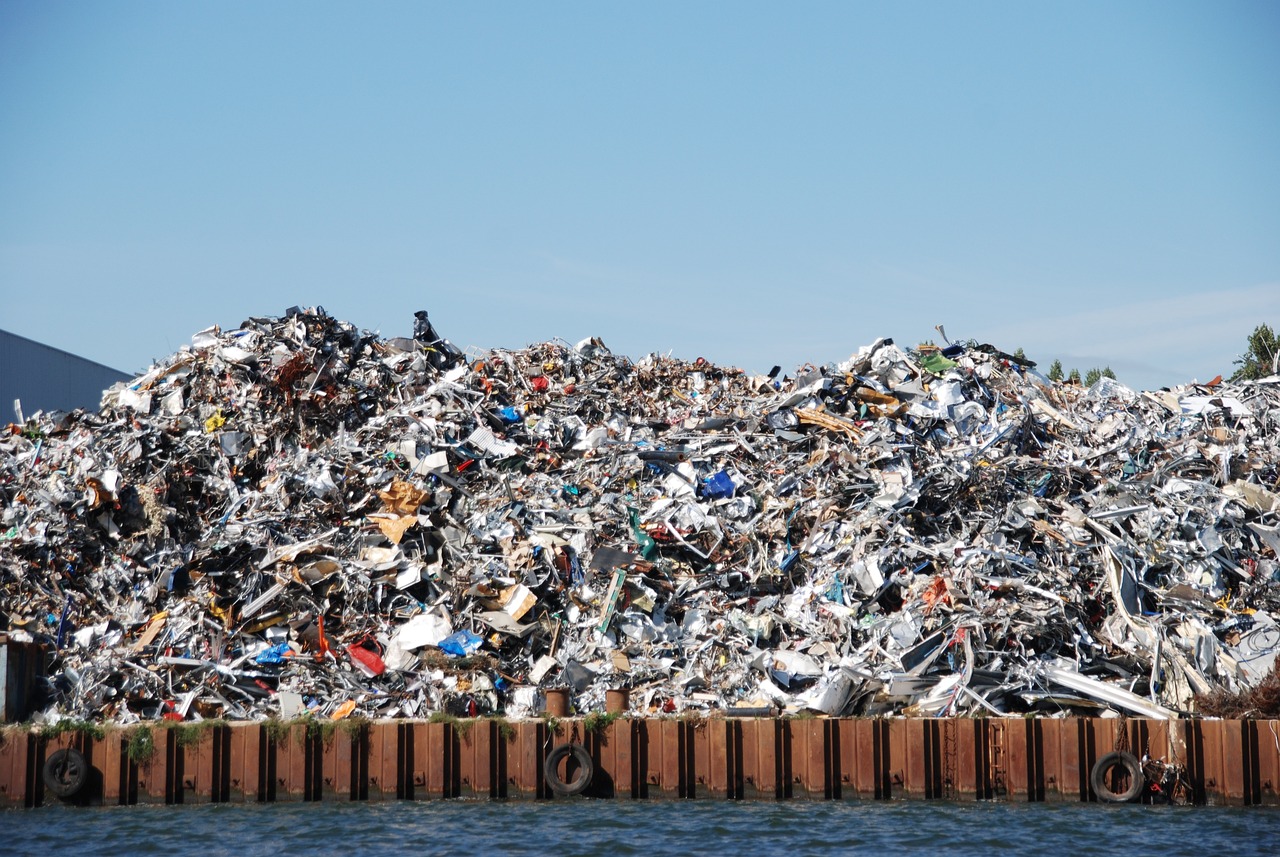Recycling is not just about sorting through trash; it’s a dynamic industry that creates a plethora of job opportunities across various sectors. When you think about it, recycling is like a well-oiled machine, where each part plays a crucial role in keeping the cycle going. From the moment a recyclable item is tossed into a bin to the point it’s transformed into a new product, numerous jobs are involved in this process. The diversity of roles in the recycling sector is impressive and includes positions in logistics, processing facilities, and manufacturing. Each of these sectors contributes significantly to overall employment rates and economic stability.
To break it down further, let's take a closer look at the different types of jobs created in the recycling industry:
At the heart of any recycling operation are the collection and transportation jobs. These roles are essential for ensuring that recyclable materials are efficiently gathered and delivered to processing facilities. Without these jobs, the entire recycling system would crumble. For instance, recycling truck operators are vital for transporting materials from collection points to recycling centers. Their work ensures the timely and effective movement of recyclables, directly impacting the efficiency of recycling operations.
Moreover, waste management coordinators oversee the logistics of recycling operations. They play a key role in optimizing routes and schedules, ensuring that materials are collected and processed efficiently. This not only helps in maintaining a smooth flow of operations but also minimizes costs and environmental impact.
Once the materials are collected, the next step involves processing and manufacturing jobs. These roles are created in facilities that sort, clean, and transform recyclables into new products. Think of this as the ‘refinery’ of the recycling industry, where waste materials are given a second life. This sector is crucial for closing the recycling loop and promoting sustainable practices. Workers in this area are tasked with ensuring that materials are processed correctly, which is essential for maintaining quality and safety standards in the final products.
In essence, the recycling industry is a tapestry of various roles that collectively contribute to job creation and economic growth. Each job, whether it’s in collection, processing, or manufacturing, plays a pivotal role in making recycling work effectively. As we continue to emphasize the importance of recycling, understanding the job landscape within this sector becomes increasingly vital.
- What types of jobs are most common in the recycling industry? The most common jobs include recycling truck operators, waste management coordinators, and roles within processing and manufacturing facilities.
- How does recycling create jobs? Recycling creates jobs by requiring a workforce to collect, process, and manufacture new products from recyclable materials.
- Are there educational requirements for jobs in recycling? Many positions require specific training, certifications, or experience in waste management and recycling technologies.
- What is the future outlook for jobs in recycling? The future looks promising, with advancements in technology and increased public awareness likely to create more job opportunities.

Collection and transportation jobs are the unsung heroes of the recycling industry. Without these vital roles, the entire recycling process would come to a grinding halt. Imagine a world where recyclable materials are left to pile up in our homes and streets; it would be a chaotic mess! These jobs not only ensure that recyclables are gathered efficiently, but they also play a crucial role in maintaining the integrity of the recycling system.
At the forefront of these efforts are recycling truck operators. These dedicated professionals are responsible for the timely collection of recyclables from various locations, including residential areas, businesses, and recycling drop-off centers. They navigate through neighborhoods, rain or shine, ensuring that every last piece of recyclable material is picked up. Their work is not just about driving a truck; it’s about understanding the importance of their role in preserving our environment and promoting sustainability.
Additionally, we have waste management coordinators, who work behind the scenes to optimize collection routes and schedules. They are the masterminds who ensure that collection operations run smoothly and efficiently. By analyzing data and using advanced software, they can determine the best routes for collection trucks, minimizing fuel consumption and maximizing productivity. This not only saves money but also reduces the carbon footprint of the recycling process.
Furthermore, the collection and transportation sector is continuously evolving. With the advent of technology, we see innovations such as GPS tracking and route optimization software becoming commonplace. These advancements not only improve efficiency but also create new job opportunities in tech support and data analysis. As the demand for recycling grows, so does the need for skilled workers who can adapt to these changes.
In conclusion, collection and transportation jobs are foundational to the recycling industry. They ensure that materials are collected and transported in a manner that supports the entire recycling process. As we continue to emphasize the importance of recycling, we must also recognize and appreciate the hard work of those who keep the wheels turning in this essential industry.
- What types of jobs are available in the recycling collection and transportation sector? There are various roles, including recycling truck operators, waste management coordinators, and logistics analysts.
- How does technology impact recycling jobs? Technology enhances efficiency in collection and transportation, creating new job opportunities in data analysis and tech support.
- Why are collection and transportation jobs important for recycling? These jobs ensure that recyclable materials are gathered efficiently, enabling the entire recycling process to function smoothly.

Recycling truck operators are the unsung heroes of the recycling industry, playing a pivotal role in the intricate dance of waste management. Imagine a bustling city where recyclable materials are scattered across neighborhoods, waiting to be collected. These operators are the ones who navigate through traffic, ensuring that cardboard, plastics, and metals are gathered efficiently and transported to recycling centers. Their job is not just about driving a truck; it’s about being the lifeline that connects consumers with the recycling process.
Every day, recycling truck operators face unique challenges. They must be adept at planning routes that are not only efficient but also environmentally friendly. By optimizing their paths, they reduce fuel consumption and emissions, which is a win-win for both the planet and the economy. These operators are trained to handle various types of materials, ensuring that each load is sorted correctly and that no contaminants are included, which could jeopardize the recycling process.
Moreover, the role of recycling truck operators is evolving with technology. Many are now equipped with GPS tracking systems that help them manage their schedules better and respond quickly to any changes in collection needs. This tech-savvy approach not only improves efficiency but also enhances communication with processing facilities, ensuring that recyclable materials are delivered promptly. In a world where time is money, these operators are crucial for maintaining the flow of recyclables through the supply chain.
In addition to their operational duties, recycling truck operators often serve as ambassadors for recycling initiatives. They educate residents about proper recycling practices, helping to raise awareness about the importance of recycling and how it impacts the environment. This interaction fosters a sense of community responsibility and encourages more people to participate in recycling programs. As they engage with the public, they help demystify the recycling process, making it more accessible and understandable.
Overall, the role of recycling truck operators is multifaceted and essential for the success of recycling programs. Their dedication not only contributes to the efficiency of recycling operations but also plays a significant part in promoting sustainable practices within communities. As we look to the future, the demand for skilled recycling truck operators will likely increase, reinforcing their importance in the green economy.
- What qualifications do recycling truck operators need? Most operators require a commercial driver's license (CDL) and training in waste management practices.
- How do recycling truck operators impact the environment? By efficiently collecting recyclables, they help reduce landfill waste and promote sustainable resource use.
- Are there advancements in technology for recycling truck operations? Yes, many operators now use GPS and route optimization software to enhance efficiency and reduce environmental impact.

Waste management coordinators play a crucial role in the recycling industry, acting as the linchpin that connects various aspects of recycling operations. Their primary responsibility is to oversee the logistics of collecting, processing, and transporting recyclable materials. Imagine a conductor leading an orchestra; without a skilled conductor, the music can quickly turn into chaos. Similarly, without effective waste management coordinators, recycling efforts can become inefficient and disorganized.
These professionals are tasked with ensuring that routes and schedules are optimized for maximum efficiency. This involves analyzing data, managing resources, and coordinating with collection teams to ensure that materials are collected on time and in the right quantities. By doing so, they help reduce operational costs and ensure that recyclable materials are processed promptly. Their work not only contributes to the effectiveness of recycling programs but also minimizes the environmental impact of waste.
Moreover, waste management coordinators must possess strong communication skills, as they frequently interact with various stakeholders, including local governments, recycling facilities, and the community. They are responsible for educating the public about recycling practices and encouraging participation in recycling programs. This educational aspect is vital, as public awareness can significantly influence the volume of materials collected for recycling.
To illustrate the importance of this role, consider the following table that outlines some of the key responsibilities of waste management coordinators:
| Responsibility | Description |
|---|---|
| Route Optimization | Analyzing and planning collection routes to enhance efficiency. |
| Stakeholder Communication | Engaging with local governments and the community to promote recycling initiatives. |
| Data Analysis | Monitoring collection data to make informed decisions about resource allocation. |
| Public Education | Creating awareness programs to educate the community about recycling practices. |
In summary, waste management coordinators are essential to the success of recycling programs. Their ability to manage logistics, communicate effectively, and educate the public ensures that recycling operations run smoothly and efficiently. As recycling becomes increasingly important in our fight against waste and environmental degradation, the demand for skilled waste management coordinators will continue to grow.
- What qualifications do waste management coordinators need? Typically, a background in environmental science, logistics, or public administration is beneficial, along with relevant certifications.
- How do waste management coordinators impact recycling rates? By optimizing collection routes and educating the public, they can significantly increase the volume of materials collected for recycling.
- Are there career advancement opportunities for waste management coordinators? Yes, with experience, coordinators can move into higher management roles or specialize in areas such as sustainability or environmental policy.

Processing and manufacturing jobs are the lifeblood of the recycling industry, playing a crucial role in transforming collected recyclables into new products. These positions not only support the economy but also promote sustainable practices that benefit our planet. When you think about it, recycling isn't just about tossing your plastic bottle into a bin; it's about creating a whole ecosystem of jobs that help reduce waste and conserve resources.
In processing facilities, workers are tasked with sorting, cleaning, and preparing recyclables for manufacturing. This is where the magic happens! For instance, when a plastic bottle is collected, it goes through a meticulous process where it is sorted by type, cleaned to remove contaminants, and then shredded into small pieces. These small pieces can then be melted down and reformed into new products, such as clothing, furniture, or even new bottles. This entire process requires a skilled workforce, leading to a variety of job opportunities.
Some of the key positions in this sector include:
- Sorters: These individuals are responsible for manually separating different types of materials, ensuring that only the right items make it to the next phase of processing. Their attention to detail is vital for maintaining the quality of recyclables.
- Machine Operators: They operate the machinery used in the recycling process, such as shredders and conveyor belts. Their expertise ensures that the equipment runs smoothly and efficiently.
- Quality Control Inspectors: These professionals monitor the quality of processed materials, making sure that they meet industry standards before being sent to manufacturers.
Manufacturing jobs in the recycling sector take things a step further. Once the recyclables have been processed, they are sold to manufacturers who turn them into new products. This not only reduces the need for virgin materials but also creates a circular economy where waste is minimized. Manufacturers benefit from lower material costs, and consumers enjoy products made from recycled materials.
The impact of recycling on job creation in this sector is significant. According to recent studies, for every job in the recycling industry, there are an estimated 1.17 jobs created in the manufacturing sector. This multiplier effect highlights how interconnected these industries are and underscores the importance of recycling programs in driving economic growth.
As we look to the future, it’s clear that processing and manufacturing jobs in recycling will continue to evolve. With advancements in technology and increased public awareness about environmental issues, the demand for recycled products is expected to rise. This creates a promising outlook for job seekers interested in joining this vital industry. The recycling sector not only provides a pathway to employment but also contributes to a healthier planet.
Q: What types of materials are commonly recycled?
A: Commonly recycled materials include paper, cardboard, glass, plastics, and metals. Each of these materials undergoes a specific recycling process to transform them into new products.
Q: How does recycling help the economy?
A: Recycling creates jobs, reduces the need for raw materials, and lowers waste management costs. By investing in recycling programs, communities can stimulate local economies and promote sustainable practices.
Q: Are there educational programs available for those interested in recycling careers?
A: Yes, many educational institutions offer programs and certifications in environmental science, waste management, and recycling technologies, providing individuals with the skills needed for careers in this field.

Education and training play a crucial role in the recycling industry, ensuring that individuals are equipped with the necessary skills and knowledge to thrive in this evolving field. As the demand for recycling services increases, so does the need for a skilled workforce capable of tackling the unique challenges associated with recycling processes. This is where education and training programs come into play, acting as a bridge between potential employees and the industry's requirements. Without these programs, the recycling sector would struggle to find qualified workers, which could hinder its growth and efficiency.
One of the most significant aspects of education in recycling is the development of certification programs. These programs are designed to provide specialized training for professionals in the field, focusing on areas such as materials processing, environmental management, and sustainability practices. By completing these certifications, individuals not only enhance their skill sets but also increase their employability in a competitive job market. Furthermore, employers often seek out certified professionals, as they demonstrate a commitment to best practices and a thorough understanding of the industry's intricacies.
In addition to certification programs, continuing education opportunities are vital for those already working in the recycling sector. The recycling industry is constantly evolving, with new technologies and methods emerging regularly. To keep pace with these changes, current employees must update their skills and knowledge. Continuing education allows workers to stay informed about the latest advancements in recycling technologies, materials, and processes. This ongoing learning is essential for adapting to industry shifts and ensuring that the workforce remains relevant and capable.
Moreover, educational institutions and organizations are increasingly recognizing the importance of developing programs that cater specifically to the recycling industry. Collaborative efforts between schools, universities, and recycling companies can lead to innovative training solutions that address the specific needs of the sector. For instance, partnerships may result in internships or hands-on training opportunities that provide students with real-world experience in recycling operations. These initiatives not only benefit the students but also the companies that gain access to a pool of well-trained potential employees.
To summarize, the role of education and training in the recycling industry cannot be overstated. As the sector continues to grow and evolve, the need for a skilled workforce equipped with the right knowledge and tools will only become more pronounced. Investing in education and training programs is essential for fostering a sustainable and efficient recycling industry, ultimately contributing to job creation and economic growth.
- What types of education programs are available for recycling professionals?
There are various programs, including certification courses, degree programs in environmental science, and specialized training workshops focused on recycling technologies and practices. - How can continuing education benefit current employees in the recycling industry?
Continuing education allows employees to stay current with industry advancements, improve their skills, and enhance their job performance, making them more valuable to their employers. - Are there any specific certifications that are highly regarded in the recycling sector?
Yes, certifications such as the Certified Recycling Professional (CRP) and those offered by the National Recycling Coalition are recognized and respected within the industry. - How do educational partnerships benefit the recycling industry?
Partnerships between educational institutions and recycling companies can create tailored training programs, internships, and job placement opportunities that help bridge the skills gap in the workforce.

Certification programs play a pivotal role in shaping the workforce in the recycling industry. These programs are designed to provide individuals with specialized training that enhances their skills and knowledge in various aspects of recycling, such as materials processing, environmental management, and sustainability practices. By participating in these programs, individuals not only improve their employability but also contribute to the overall efficiency and effectiveness of recycling operations.
One of the key benefits of certification programs is that they equip participants with the latest industry standards and best practices. This ensures that they are well-prepared to tackle the challenges faced in the recycling sector. For instance, the curriculum often includes hands-on training and real-world scenarios that help trainees understand the complexities of recycling processes. Additionally, these programs often collaborate with industry experts who share their insights and experiences, providing a rich learning environment.
Moreover, certification can enhance career advancement opportunities. Many employers in the recycling sector prefer candidates who possess recognized certifications, as it demonstrates a commitment to professional development and a solid understanding of industry practices. This can lead to increased job security and the potential for higher wages. For example, certified professionals may qualify for roles such as recycling facility managers, environmental compliance specialists, or sustainability consultants, all of which are critical to the success of recycling initiatives.
In summary, certification programs are essential for cultivating a skilled workforce in the recycling industry. They not only provide valuable training but also open doors to new career opportunities, making them a worthwhile investment for anyone looking to enter or advance in this dynamic field.
- What are the benefits of certification in recycling? Certification enhances job prospects, ensures adherence to industry standards, and provides advanced knowledge of recycling processes.
- How long do certification programs typically last? The duration of certification programs can vary, but most range from a few weeks to several months, depending on the depth of the curriculum.
- Are there online certification programs available? Yes, many organizations offer online certification programs, allowing flexibility for individuals to learn at their own pace.
- What types of jobs can I qualify for with a recycling certification? With a recycling certification, you could qualify for roles such as recycling coordinator, waste management specialist, or sustainability analyst.

In the dynamic world of recycling, continuing education opportunities play a pivotal role in ensuring that professionals stay ahead of the curve. As technology evolves and new practices emerge, workers in the recycling sector must adapt to these changes to maintain efficiency and effectiveness. This is where ongoing education becomes essential. Many organizations offer specialized training programs that focus on the latest advancements in recycling technologies, environmental management, and sustainable practices. These programs not only enhance employees' skill sets but also empower them to take on more significant roles within their organizations.
For instance, many recycling facilities have begun to implement online training modules that cover various aspects of the industry. These modules can include topics such as:
- Advanced sorting techniques
- Materials recovery strategies
- Environmental compliance regulations
- Innovative recycling technologies
Additionally, many educational institutions are recognizing the importance of recycling and sustainability by offering degree programs and certifications specifically tailored to this field. Such programs can range from associate degrees in environmental science to specialized certifications in waste management. This kind of formal education not only enhances an individual's qualifications but also opens doors to higher-paying job opportunities.
Moreover, the recycling industry often collaborates with local community colleges and universities to create tailored training programs that meet the specific needs of the workforce. These partnerships can lead to internships and apprenticeships, providing hands-on experience that is invaluable in this field. By investing in continuing education, employees can ensure they are equipped with the necessary skills to thrive in an ever-evolving industry, ultimately contributing to the overall success of recycling initiatives.
1. Why is continuing education important in the recycling industry?
Continuing education is vital as it helps workers stay updated on the latest technologies and practices, ensuring that they can perform their jobs effectively and adapt to industry changes.
2. What types of continuing education programs are available?
Programs can include online training modules, workshops, certification courses, and degree programs focused on environmental science and waste management.
3. How do partnerships with educational institutions benefit the recycling industry?
These partnerships can create tailored training programs that meet workforce needs, leading to internships and hands-on experience for students and new workers.
4. Are there any specific skills that are emphasized in continuing education for recycling?
Key skills include advanced sorting techniques, materials recovery strategies, and knowledge of environmental compliance regulations.

The landscape of recycling jobs is evolving rapidly, and the future looks incredibly bright! As we become more aware of environmental issues, the demand for recycling services is skyrocketing. This surge isn't just a passing trend; it reflects a growing commitment to sustainability and responsible waste management. With technological advancements and increased public awareness, the recycling industry is poised for significant growth, which will inevitably lead to the creation of numerous job opportunities.
One of the most exciting aspects of the future of recycling jobs is the role of technological innovations. Automation and artificial intelligence are already making waves in the industry, streamlining processes and enhancing efficiency. Imagine robots sorting through materials at lightning speed, ensuring that recyclables are processed correctly and swiftly. This not only reduces human error but also opens up new job opportunities for individuals skilled in technology and robotics. As these technologies advance, the need for tech-savvy workers will increase, creating a demand for specialized skills that were previously unheard of in the recycling sector.
Moreover, government policy and legislation play a crucial role in shaping the future of recycling jobs. Supportive policies can lead to increased funding for recycling programs, which in turn boosts job creation. For instance, initiatives aimed at enhancing recycling infrastructure can lead to more positions in logistics, processing, and manufacturing. As local and national governments recognize the economic and environmental benefits of recycling, we can expect to see more robust support for this sector, paving the way for a sustainable future.
In addition to technological and policy advancements, the recycling industry will likely see a shift in job types. While traditional roles will always be essential, new positions will emerge that focus on sustainability and environmental management. For example, jobs related to sustainability consulting will become more prevalent as companies strive to meet their sustainability goals. This shift will require a workforce that is not only knowledgeable about recycling processes but also understands the broader implications of waste management on the environment.
As we look ahead, it's clear that education and training will be vital in preparing the workforce for these new opportunities. Ongoing education programs will help individuals stay current with industry trends and technologies, ensuring that they are equipped to meet the demands of a rapidly changing job market. The recycling industry will need professionals who are adaptable and willing to learn, as the landscape continues to evolve.
In conclusion, the future of recycling jobs is not just about maintaining the status quo; it's about embracing change and innovation. With the right support, training, and a commitment to sustainability, the recycling industry can continue to thrive, creating a myriad of job opportunities that benefit both the economy and the environment. The journey towards a greener future is just beginning, and the recycling sector will be at the forefront, leading the charge with exciting new roles and responsibilities.
- What types of jobs are expected to grow in the recycling industry? As technology advances, jobs in automation, sustainability consulting, and environmental management are expected to grow significantly.
- How can I prepare for a career in recycling? Engaging in education and training programs focused on recycling technologies and sustainability practices can provide a solid foundation for a career in this field.
- What role does government policy play in job creation in the recycling sector? Supportive government policies can lead to increased funding and investment in recycling programs, creating more job opportunities.

In recent years, the recycling industry has undergone a remarkable transformation driven by technological innovations. These advancements have not only revolutionized how we process waste but have also opened up a plethora of new job opportunities. Imagine a world where machines can sort recyclables more accurately and efficiently than humans—this is becoming a reality thanks to automation and artificial intelligence (AI). With these technologies, the recycling process is faster, cleaner, and more efficient, leading to a significant increase in the volume of materials that can be processed.
For instance, AI-powered sorting systems can analyze materials on a conveyor belt, identifying and categorizing recyclables with incredible precision. This minimizes contamination and maximizes recovery rates, which is essential for maintaining the economic viability of recycling programs. As these systems become more prevalent, the demand for skilled technicians who can operate and maintain such advanced machinery will undoubtedly rise.
Moreover, innovations in robotics are also playing a crucial role in enhancing recycling operations. Robots can perform repetitive tasks, such as sorting and picking materials, which not only speeds up the process but also reduces the risk of injury for human workers. This shift not only improves efficiency but also creates a safer working environment.
Another exciting development is the integration of data analytics into recycling operations. By utilizing big data, companies can optimize their logistics and identify trends in material recovery. This data-driven approach allows for better decision-making and resource allocation, ultimately leading to improved operational efficiency. As a result, there is a growing need for data analysts and IT professionals in the recycling sector, further expanding the job market.
In summary, the future of recycling jobs is bright, heavily influenced by technological advancements. As automation, AI, and data analytics continue to evolve, they will not only enhance the efficiency of recycling processes but also create a demand for a new generation of skilled workers. The potential for job creation in this sector is immense, making it an exciting time to be involved in the recycling industry.
- What types of jobs are created by technological innovations in recycling?
Technological innovations lead to jobs in areas such as robotics maintenance, data analysis, and AI system management, among others. - How does automation affect job opportunities in recycling?
While automation may reduce some manual labor jobs, it also creates new positions that require specialized skills to operate and maintain advanced technologies. - Are there training programs available for those interested in recycling technology?
Yes, many educational institutions and organizations offer certification programs and training focused on the latest recycling technologies.

Government policies and legislation play a crucial role in shaping the landscape of the recycling industry. When lawmakers prioritize recycling through supportive regulations and funding, it creates a favorable environment for job creation. For instance, incentives for recycling programs can lead to increased investments from both private and public sectors, which directly translates to more jobs. These policies can include tax breaks for companies that engage in sustainable practices, grants for recycling facilities, or even mandates that require businesses to recycle a certain percentage of their waste.
Moreover, legislation that sets recycling targets can significantly boost employment in the sector. By establishing clear goals, governments can encourage innovation and efficiency in recycling processes. This not only helps in meeting environmental objectives but also opens up new avenues for job creation. For example, when a state sets a goal to recycle 50% of its waste by a specific year, it necessitates the development of new facilities, hiring of additional staff, and enhancement of collection services. This ripple effect can lead to a surge in job opportunities across various sectors, from logistics to processing and manufacturing.
To illustrate the impact of policy on job creation in recycling, consider the following table:
| Policy Type | Description | Potential Job Creation |
|---|---|---|
| Incentives | Tax breaks for businesses that implement recycling programs | Varies by program; can create hundreds of jobs |
| Mandates | Requirements for businesses to recycle a certain percentage of waste | Thousands of jobs in collection and processing |
| Funding | Grants for new recycling facilities and technologies | Can generate significant employment in construction and operations |
In addition to direct job creation, effective policies can also lead to indirect employment opportunities. For instance, as recycling programs expand, there is a growing demand for research and development in recycling technologies. This creates jobs in engineering, environmental science, and technology sectors, as companies seek innovative solutions to improve recycling efficiency. Furthermore, public awareness campaigns funded by the government can help increase participation in recycling programs, leading to higher demand for recycling services and, consequently, more jobs.
In conclusion, the impact of policy and legislation on job creation in the recycling industry cannot be overstated. By fostering an environment that supports recycling initiatives, governments not only contribute to environmental sustainability but also stimulate economic growth and job creation. As we move forward, it is essential for policymakers to recognize the potential of recycling as a job creator and to implement measures that will enhance this vital sector.
- How do government policies affect recycling rates? Government policies can incentivize recycling through regulations, funding, and support, which can significantly increase recycling rates.
- What types of jobs are created by recycling initiatives? Jobs in collection, processing, logistics, and manufacturing are commonly created through recycling initiatives.
- Can recycling programs lead to long-term employment growth? Yes, effective recycling programs can lead to sustained job growth as demand for recycling services and technologies increases.
- What role does public awareness play in recycling success? Public awareness campaigns can educate communities about the importance of recycling, leading to higher participation rates and job creation.
Frequently Asked Questions
- How does recycling create jobs?
Recycling creates jobs through various sectors such as collection, processing, and manufacturing. Each of these areas requires a workforce to ensure recyclable materials are efficiently gathered, processed, and transformed into new products, thereby boosting employment opportunities.
- What types of jobs are available in the recycling industry?
There are several types of jobs in the recycling industry, including recycling truck operators, waste management coordinators, and roles in processing and manufacturing facilities. Each position plays a critical role in the recycling supply chain, contributing to overall job creation.
- What is the role of education in recycling job creation?
Education plays a vital role in preparing individuals for jobs in the recycling sector. Certification programs and continuing education opportunities help equip workers with the necessary skills and knowledge to thrive in this evolving industry.
- How is technology influencing recycling jobs?
Technological advancements, such as automation and artificial intelligence, are revolutionizing the recycling industry. These innovations not only improve efficiency but also create new job roles that require specialized skills, paving the way for more employment opportunities.
- What impact do government policies have on recycling jobs?
Government policies and legislation can significantly affect job creation in the recycling sector. Supportive policies encourage investment in recycling initiatives, leading to increased employment opportunities and fostering economic growth.
- Are there opportunities for career advancement in recycling?
Yes, there are ample opportunities for career advancement in the recycling industry. With ongoing education and training, individuals can enhance their skills and move into higher-level positions, contributing to their personal and professional growth.

